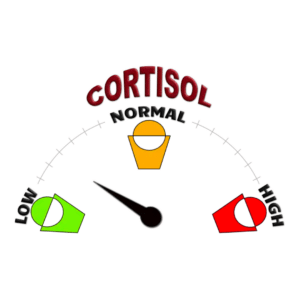Earlier this month I watched “Trust me, I’m a Doctor” with Michael Mosley. The question he raised was whether genetic tests that probe into our genes and offer us advice on what we should eat, how we should exercise, and whether we are predisposed to certain disease characteristics, are beneficial or simply a waste of time and money. He was talking about the field of Nutrigenomics.
Are genetic tests worthwhile?
Michael Mosley interviewed a geneticist who said she would discourage genetic tests because the chances of them giving any practical information is small. She also noted that with some of the information available, people may prefer to not know.
The tests that Michael Mosley was talking about provide us with information about our individual gene variants. Whilst our genes are all very similar, there are small differences between us that can be very significant and can influence our susceptibility to various diseases.
These gene variants are also called single nucleotide polymorphisms, abbreviated as SNPs and pronounced ‘snips’.1 While it is arguable that we may be reluctant to find out information concerning what we might perceive to be an inescapable fate, research is showing that being a carrier of a certain ‘disease’ gene variant does not necessarily mean we will die of that disease.2
Research is showing that being a carrier of a certain ‘disease’ gene variant does not necessarily mean we will die of that disease.
Rather, it indicates a susceptibility to the disease that our unique environment, lifestyle and diet can influence.2 For this reason, I believe it is useful to find out such information, and, in clinical practice, I have found these tests to be inspirational tools.
How can genetic tests help improve our health?
‘Environment’ in this context refers to everything around us that impacts our state of wellbeing, including things such as cosmetics, clothing, cleaning materials, plastics, whether we cook in aluminium foil or microwave our food,2 and so forth.
‘Lifestyle’ describes the choices we make in terms of our habits, behaviours and ways of living (such as whether we smoke and how we socialise), and ‘diet’ refers to our individual choices when it comes to food and drink, including the quantity and variety of it, and whether or not it is organic.2
These are the factors that interact with our genetic susceptibilities and empower us to take some control over the management of our health. In Functional Medicine we use the expression: “Whilst the genes load the gun, the environment (which includes diet and lifestyle) pulls the trigger”.3
Whilst the genes load the gun, the environment (which includes diet and lifestyle) pulls the trigger.
Using genetic tests to improve our health
The Apoe4 SNP, which has received a lot of publicity of late, is a good example. People who have this SNP have been found to have an increased risk for heart disease and Alzheimer’s disease.2,4 For this reason, many individuals who fear they may be at risk are reluctant to find out whether they may be carriers of it.
What the research shows, however, is that this SNP in itself does not create Alzheimer’s disease or heart disease. Rather, it creates a high vulnerability to the effects of a diet high in saturated fat and sugar, and of a sedentary lifestyle.2,5 Therefore this SNP is not saying to the carriers of it that they will die of Alzheimer’s disease or heart disease. It is instead encouraging them to take their healthcare in hand and to personalise it in a way that will reduce their risk.2,6
The Apoe4 SNP is encouraging them to take their healthcare in hand and to personalise it in a way that will reduce their risk.
The same applies to other chronic illnesses such as type 2 diabetes, for which there are no specific genes.2,7 Rather, there are families of gene variants that, when exposed to certain environmental, lifestyle and dietary triggers, culminate in particular chronic illnesses. Since we cannot change our genes, we can be motivated to change the messages they receive from our environment and prevent the trigger being pulled.
Likewise, there is no clear-cut “autism gene” but rather hundreds of genes with some relationship to autism.2,8 That is why it is more appropriately referred to as Autistic Spectrum Disorder or ASD. Individuals on the spectrum differ from person to person and what we are seeing in them is a wide range of environmental factors interacting with a multitude of different genetic susceptibilities.2,8
Mounting research is showing that some of the major environmental factors that play a key role in ASD are allergy-producing foods, such as those containing gluten and cow’s milk proteins.
In many cases changing that person’s diet, therapies and environment can make a big difference to the characteristics they express are termed as being ‘autistic’.2,9 Mounting research is showing that some of the major environmental factors that play a key role in ASD are allergy-producing foods, such as those containing gluten and cow’s milk proteins.
There is evidence that it is possible to manage an individual’s autistic symptoms by eliminating things in his/her environment that may be problematic and adding back those things he/she may need more of. In each given case, the specific factors that culminate in the disorder need to be analysed, taking into account that individual’s specific genetic susceptibilities.2,8,9
Why are genetic tests good to do?
Having information about our genes is motivational. It is a positive step of encouragement telling us more about how we should live our lives to achieve optimum health, rather than a negative fore-warning of the chronic illnesses we are doomed to suffer.
Whilst some genes may predispose us to obesity, type 2 diabetes, depression or heart disease, this does not mean that we are predestined to become fat, sick and depressed.
Simply put, whilst some genes may predispose us to obesity, type 2 diabetes, depression or heart disease, this does not mean that we are predestined to become fat, sick and depressed. It is within our power to prevent these outcomes by eating well, exercising and modifying certain lifestyle factors that are within our control. We can do this by taking the steps necessary to embark on a tailor-made personal healthcare program and living our lives to the fullest.
REFERENCES
- Bethesda MD (2005) General Information about Single Nucleotide Polymorphisms. National Center for Biotechnology Information (US)
- Bland J (2014) The Disease Delusion: Conquering Causes of Chronic Illness for a Healthier, Longer and Happier Life. Integrative Medicine: A Clinician’s Journal 13(5): 52-56
- Llewellyn C, Fildes A (2017) Behavioural Susceptibility Theory: Prof Jane Wardle and the Role of Appetite in Genetic Risk of Obesity. Current Obesity Reports 6(1): 38-45
- Pollin T, Quartuccio m (2013) What we know about diet, genes and dyslipidemia: Is there potential for translation? Current Nutrition Reports 2(4): 236-242
- Seger Y, Livne A, Mints M, Rosenblum K (2016) Concurrence of high-fat diet and APOE gene induces allele specific metabolic and mental stress changes in a mouse model of Alzheimer’s disease. Frontiers of Behavioural Neuroscience 10: 170
- Lane-Donovan C, Hertz J (2016) High-fat diet changes hippocampal apolipoprotein E (ApoE) in a genotype-and carbohydrate-dependant manner in mice PLos One 11(2)
- Ali O (2013) Genetics of Type 2 Diabetes. World Journal of Diabetes (494): 114-123
- Karim P, Kamali E, Mousari S, Karahmadi M (2017) Environmental factors in influencing the risk of autism. Journal of Research in Medical Sciences 22:27
- El-Rashidy O, El-Baz F, El-Gendy Y, Khalaf R, Reda D, Saad K (2017) Ketogenic diet versus gluten-free casein-free diet in autistic children: a case-control study Metabolism of Brain Disease 32(6)








